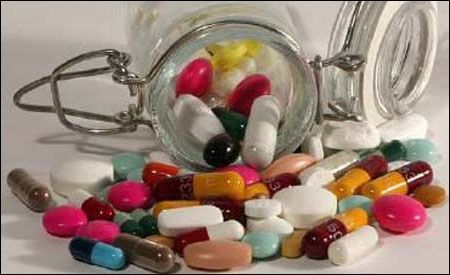Lobby group tells USTR it has got assurance from India on compulsory licensing.
 While the Budget is supposed to be aiming for mass availability of low-priced indigenous drugs, indications from US pharmaceutical lobbies suggest another scenario.
While the Budget is supposed to be aiming for mass availability of low-priced indigenous drugs, indications from US pharmaceutical lobbies suggest another scenario.
It appears American industry associations have got feelers that India might not grant compulsory licensing for commercial purposes. The term is used for a government allowing someone else to produce a patented product or process, without consent of the patent owner.
There are various grounds on which such licences can be given - when a drug is not widely available, extremely expensive, etc. Many Indian companies have filed applications for such licences with the government, with the stated aim of making available affordable medicine.
"While the Government of India has privately reassured (American) industry that it would not use compulsory licences for commercial purposes, a public commitment to forgo using (this) would enhance legal certainty for innovative industries," goes a submission by the US Chamber of Commerce to the office of the US Trade Representative (USTR).
USTR is the American government agency responsible for developing and recommending the country's trade policy.
"Despite compulsory licensing denials, (American) industry continues to be concerned by the potential threat of compulsory licensing. The Government of India has privately reassured us it would not use (this) for commercial purposes," goes a February 5 submission of the US-India Business Council to the USTR.
According to Leena Menghaney, a lawyer who works on the affordable medicine campaign of Medicins Sans Frontieres, the international humanitarian agency, the government can't give even an oral commitment on not giving compulsory licences. "That would be unconstitutional and illegal," she said.
The Indian government did not issue any compulsory licence for biopharmaceuticals in 2015.
However, it is examining various applications under sections 84 and 92 of the Indian Patents Act.
For example, a final decision in two compulsory applications under section 92 for Bristol-Myers-Squibb's anti-cancer drug, Dasatinib, and Novartis's respiratory drug, Onbrezis, is awaited.
"The Modi government should restore the confidence of innovative pharmaceutical industry by formally closing these matters and send a clear and unmistakable signal that intellectual property rights will not be disturbed unless there is a cause," added the US Chamber of Commerce in its submission to USTR.
The chamber also urged the government to formally dissolve the inter-ministerial panel appointed under the earlier government to select medicines for compulsory licences.
"Whether it is commercial or non-commercial, as per the law, Indian government has to give compulsory licences under various specific circumstances e.g. when the drug is unaffordable or unavailable, its patent holder has been found abusing its dominant position or indulging in anti-competitive behaviour by Competition Commission of India etc," said Menghaney.












 © 2025
© 2025